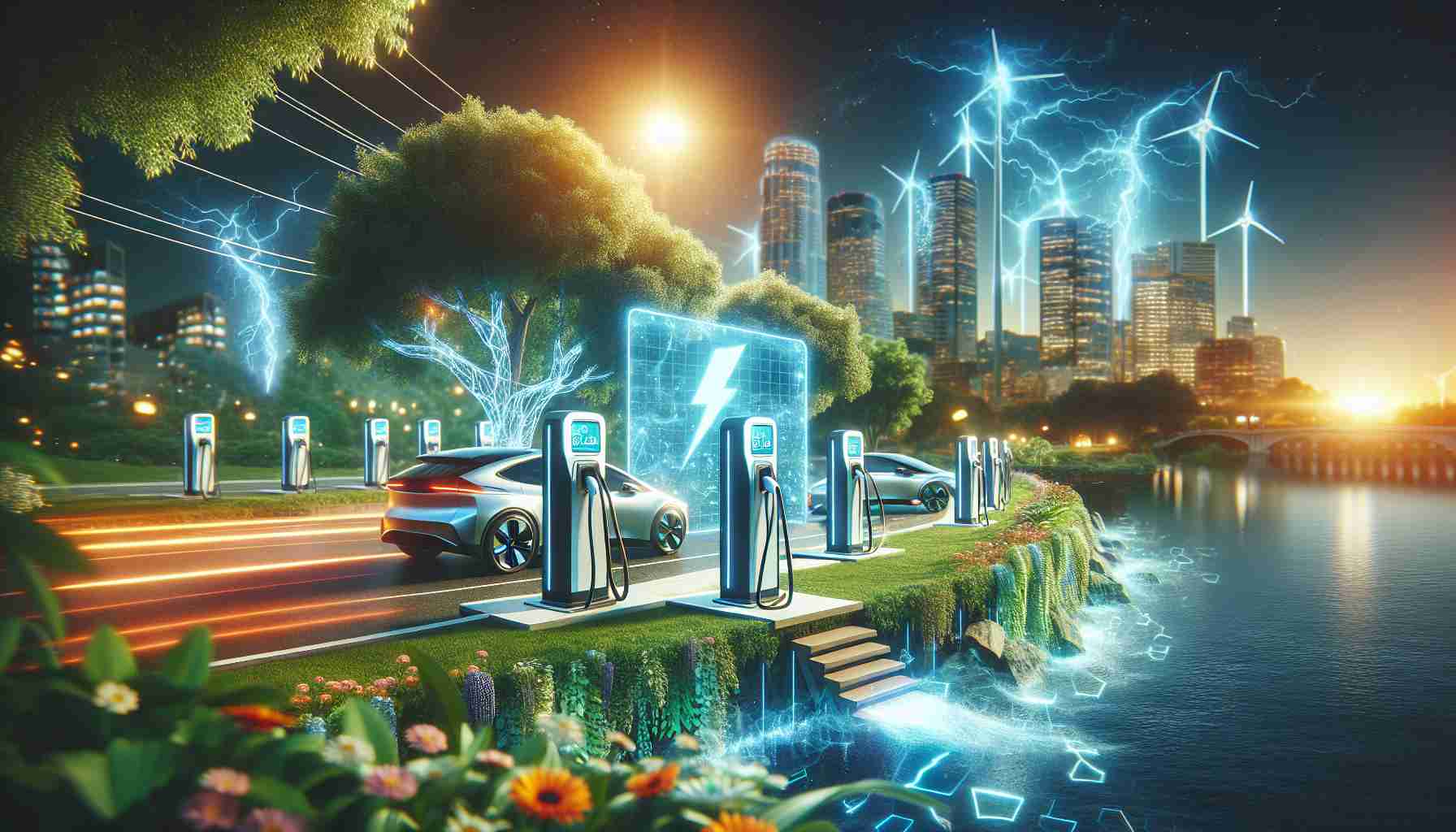Oak Park Receives Substantial Funding for EV Infrastructure
Oak Park is set to significantly enhance its electric vehicle (EV) infrastructure with newfound federal funding exceeding $14.4 million awarded to the Metropolitan Mayors Caucus (MMC) by the U.S. Department of Transportation. This financial support will facilitate the installation of 13 additional public EV charging stations across the village.
Potential locations for these stations are being considered, including Village Hall, local parking garages, and areas strategically placed near residential neighborhoods, workplaces, and parks. Currently, the village boasts 13 publicly accessible chargers, and this grant would effectively double that number, addressing the rising demand for electric vehicle usage.
The transition to electric vehicles is evident, with ownership among Oak Park residents rising from a mere 0.7% in 2019 to an impressive 3.5% in 2024, as reported by the village’s Chief Sustainability Officer. The broader MMC initiative aims to establish 196 EV charging stations throughout the Chicago area, significantly enhancing the network of charging ports.
In addition, one compressed natural gas fueling station will be funded by this grant, promoting renewable energy sources. The MMC emphasizes the importance of equitable access to these charging stations, ensuring that all residents benefit from this growing infrastructure.
Despite these advancements, village officials face challenges in meeting more ambitious emissions reduction targets.
Broader Implications of Oak Park’s EV Infrastructure Investment
The recent investment in electric vehicle (EV) infrastructure in Oak Park exemplifies a significant trend toward sustainable urban transportation, reflecting broader shifts in societal values and environmental priorities. With federal funding of over $14.4 million directed towards enhancing EV accessibility, this initiative not only supports local residents’ growing interest in electric cars but also propels the region toward a greener future.
As EV adoption rises, fueled by both environmental consciousness and advancements in technology, the implications extend beyond individual convenience. Culturally, communities are beginning to embrace sustainable living as a core value, affecting everything from residential development to transportation policies. This shift fosters a collective commitment to carbon reduction, impacting local economies as businesses adapt to cater to the changing landscape.
On a global scale, this investment mirrors international trends towards electrification and renewable energy. As more municipalities implement similar initiatives, the cumulative effect could reshape the automobile industry, prompting manufacturers to accelerate the production of zero-emission vehicles.
The environmental benefits of expanding EV infrastructure are significant. Enhanced charging networks can reduce dependence on fossil fuels, thus minimizing urban air pollution and contributing to global climate goals. Long-term, as communities like Oak Park enhance their EV networks, they lay the groundwork for a sustainable public Transit Ecosystem that may include shared electric mobility options and clean energy solutions, paving the way for a cleaner, greener society.
Oak Park’s Electric Vehicle Revolution: Funding, Features, and Future Insights
Overview of Oak Park’s EV Infrastructure Expansion
Oak Park is on the brink of a major transformation in its electric vehicle (EV) infrastructure, bolstered by significant federal funding exceeding $14.4 million granted to the Metropolitan Mayors Caucus (MMC) by the U.S. Department of Transportation. This major investment will facilitate the installation of 13 new public EV charging stations throughout the village, effectively doubling the current number to meet the escalating demand for electric vehicles.
Features of the New Charging Stations
The new EV charging stations will be thoughtfully located in accessible areas throughout Oak Park, including:
– Village Hall: A central location promoting usage by visitors and employees.
– Local Parking Garages: Providing convenience for commuters and shoppers.
– Residential Neighborhoods: Catering to residents without home charging options.
– Parks and Workplaces: Encouraging the use of electric vehicles for leisure and work-related travel.
Trends in Electric Vehicle Adoption
The rise in electric vehicle ownership in Oak Park is notable; it has surged from just 0.7% in 2019 to an impressive 3.5% in 2024. This increase demonstrates a significant shift towards sustainable transportation, reflecting a growing awareness and commitment among residents to reduce carbon emissions and embrace clean energy solutions.
Sustainability and Equitable Access
The MMC’s initiative is not only about expanding infrastructure but also emphasizes equitable access to EV charging resources. The goal is to ensure that all residents, regardless of location or socioeconomic status, can benefit from the convenience of EV charging stations. Alongside the new charging stations, the grant will also fund one compressed natural gas (CNG) fueling station, promoting a broader transition to renewable energy sources.
Pros and Cons of Expanding EV Infrastructure
Pros:
– Increased Convenience: More charging stations will enhance accessibility for EV users.
– Environmental Benefits: Encourages a reduction in greenhouse gas emissions.
– Promotes Renewable Energy: Supports the use of CNG and electric vehicles, contributing to a sustainable future.
Cons:
– Cost and Funding Challenges: Securing ongoing funding for maintenance and operation of new stations can be challenging.
– Infrastructure Limitations: Existing electrical grids may need updates to support additional charging loads.
Insights and Future Predictions
The expansion of EV infrastructure in Oak Park aligns with broader national trends favoring electric vehicles. As the demand for EVs increases, experts predict that investment in infrastructure will continue to grow, enhancing the overall EV ecosystem. The ambitious goals set by the MMC for establishing a network of 196 charging stations in the Chicago area are indicative of a comprehensive strategy to support electric mobility across urban landscapes.
Conclusion
Oak Park’s substantial investment in EV infrastructure marks a pivotal moment for the village as it embraces sustainable transportation. The planned expansion of charging stations will not only cater to the growing number of electric vehicle owners but will also set a precedent for other municipalities aiming to develop their own eco-friendly transit solutions.
For more information on the Metropolitan Mayors Caucus and its initiatives, visit MMC’s official website.
